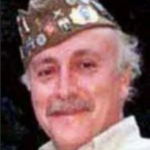I am still a week behind on the TV series Fringe, but I found last week’s episode, which brings Fringe and Lost into contact yet again as time travel, signs from God, and the identies of “man of science” and “man of faith” were given a powerful treatment.
 If there is a religion-related question that Fringe, Lost, and FlashForward all lead us to ask, it is whether the sense some of us sometimes have that our lives are being woven into a pattern by a higher power, giving us direction even sometimes in the form of a sign, is an indication that God (in the traditional theistic sense) exists, or that time travel is possible. If time travel is possible, then someone could talk to you in the future, learn from you that you are seeking a sign from God, and travel back in time to provide you with the sign, even though time changes as a result and you never have the conversation.
If there is a religion-related question that Fringe, Lost, and FlashForward all lead us to ask, it is whether the sense some of us sometimes have that our lives are being woven into a pattern by a higher power, giving us direction even sometimes in the form of a sign, is an indication that God (in the traditional theistic sense) exists, or that time travel is possible. If time travel is possible, then someone could talk to you in the future, learn from you that you are seeking a sign from God, and travel back in time to provide you with the sign, even though time changes as a result and you never have the conversation.As we got to meet the character of Dyson Frost on FlashForward this past week, I was reminded of the character Paul Atreides, aka Muad’dib, in the Dune novels. By using spice (not the modern variety that has been in the news alot lately, but something else), he gains the ability to see the future, and thus at one point we find him going through the motions of a conversation he has already experienced in his mind. Two more science fiction works (one recent, one now a classic), both of which explore visions of the future and their impact in relation to religion as well as other aspects of life.
If it turned out that we live in a reality in which parallel universes exist and time travel is possible, how would that affect your view of God, and how might traditional religions adapt to incorporate such ideas into their thinking?
[A footnote for fans of Dune: the story was originally set in Oregon, before Frank Herbert decided to move it to the planet Arrakis!]
















